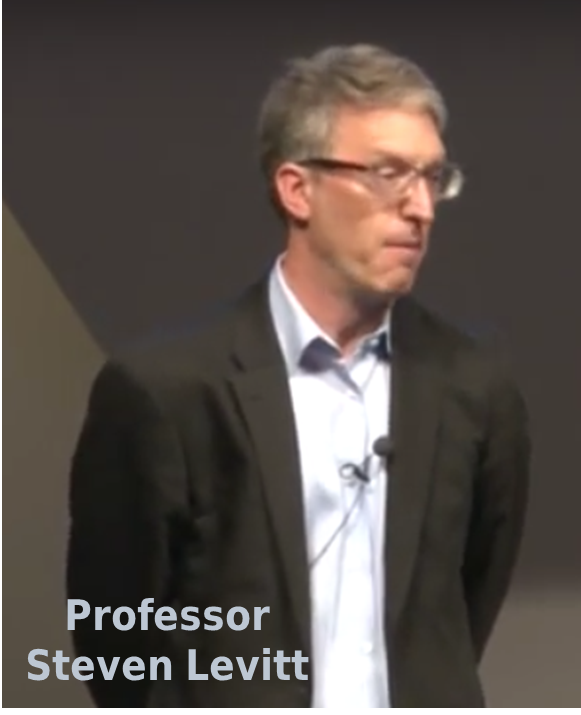
| Home | FAQs | Book Contents | Updates & News | Downloads |
Anyone who had read any of my previous pieces on applying "Big Data" approaches in the upstream oil industry will know that I am personally sceptical about our ability to get the necessary E&P data into a form that is amenable to the technique. My own view is that if we can obtain the data then great value can be had, but that's a very big if.

It was interesting to watch a luminary of data driven analysis, the economist Steven Levitt one of the authors of "Freakonomics", explaining his own take on "Big Data"✠ . He has some great examples of applying data to prove unpopular notions and deliver unexpected realisations. His interesting case studies of fixed Sumo wrestling bouts, fast food recruitment, the effects of hurricane Katrina and airline delays fill most of the time, but towards the end he explains why he is pessimistic about the ultimate impact that "data science" will have on conventional business practice. He explains how in his first forays into business he encountered people who defined their own jobs so narrowly that they felt the intelligence he provided was "not actionable". He also had an example of a top MBA student that thought Levitt's case studies about using data to sell more beer couldn't be applied by him because "I sell soft drinks". Obviously we all know that there are narrowly focused staff in any business, I don't think that is a fundamental issue. In my experience the vast majority of oil company managers and executives are more intelligent than that, and are interested to hear about new ways to do their jobs. The few obvious exceptions, for example where executives are clearly uninterested in improvement, stand out exactly because they are so uncommon.
The really telling point he makes was about the difficulty that existing business managers face in admitting ignorance. As the professor explains it, in most big businesses up to the current era a decision maker's success has been measured by his ability to sound certain and turn out to be right (or at the very least, not demonstrably wrong). The claim is that these, predominantly "middle aged men", currently see themselves as experts using their own proficiency to make correct decisions. In this new world they have to dramatically change this, they have to instead become adept at uncovering the best questions, the ones where data is available and answers are actionable. In other words at articulating exactly what it is they don't know. This is the fundamental shift that Levitt is so wary of.
His observation is that current business leaders would rather make a bad decision quickly than admit to a lack of certainty about anything. Unfortunately I suspect he has a rather good point. Doing good data science is hard enough: finding the right question; identifying where data can be found; implementing ways to stitch different sources together; selecting an action that will justify the time spent. Having to first change the whole outlook of a complete class of management is hard. Personally I hope he is being too pessimistic and that managers and executives will begin to feel more comfortable declaring their own ignorance.
✠ Available at https://www.youtube.com/watch?v=r5jATFtKtI8 The "Sackler Big Data Colloquium" lecture by Steven Levitt is well worth watching
Article 66 |
Articles |
RSS Feed |
Updates |
Intro |
Book Contents |
All Figures |
Refs |
Downloads |
Links |
Purchase |
Contact Us |
Article 68 |